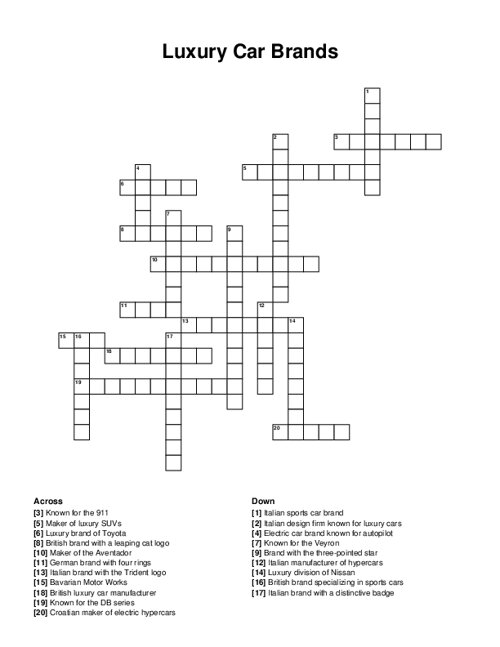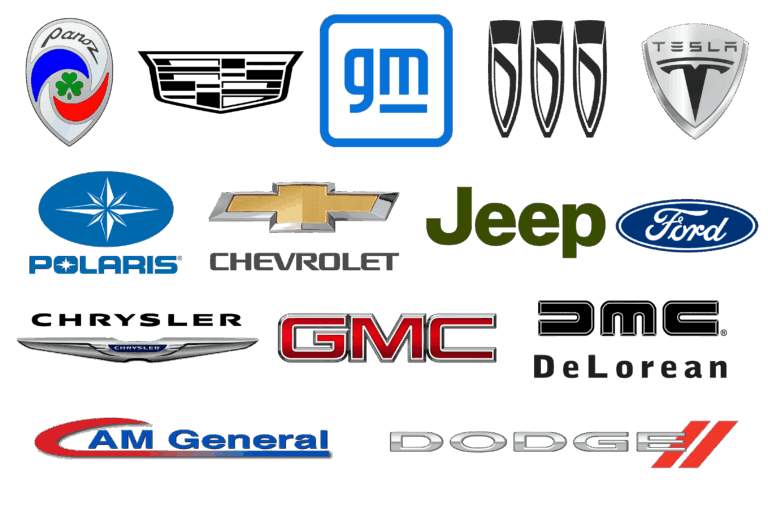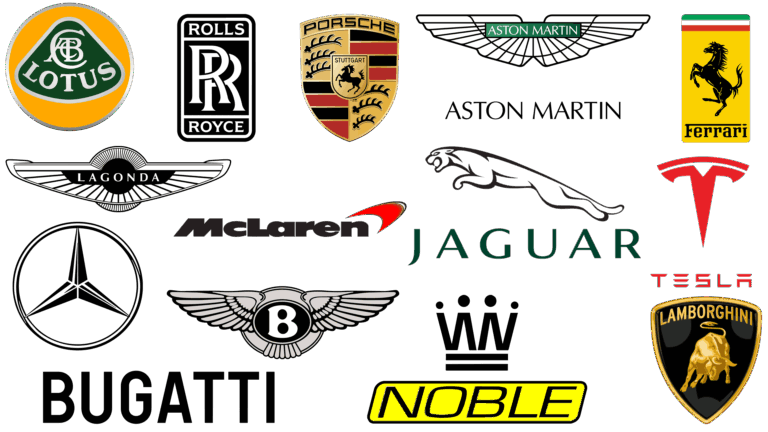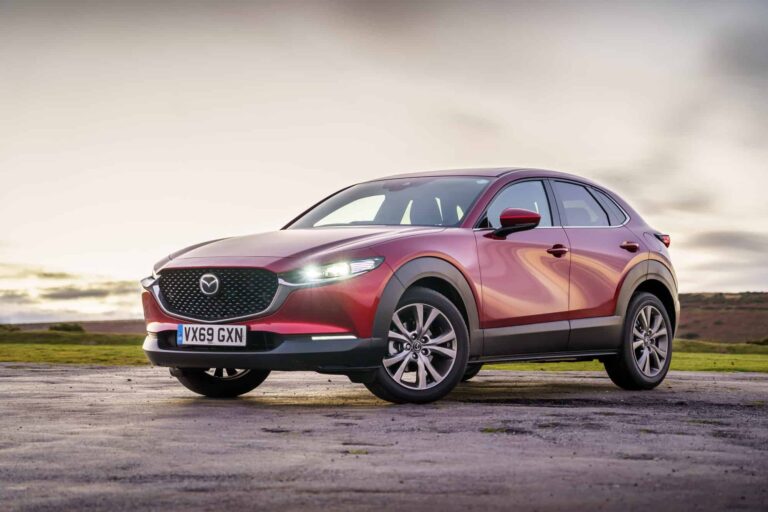Asian Luxury Car Brands: A Comprehensive Guide to Excellence and Innovation
Asian Luxury Car Brands: A Comprehensive Guide to Excellence and Innovation cars.truckstrend.com
For decades, the luxury automotive landscape was dominated by European marques, their names synonymous with heritage, prestige, and engineering prowess. However, a quiet revolution has been brewing from the East, transforming perceptions and challenging established norms. Asian luxury car brands, once dismissed as mere value propositions, have meticulously crafted a new narrative, one built on a foundation of relentless quality, groundbreaking technology, unparalleled customer service, and distinctive design. This article delves into the world of Asian luxury, exploring its origins, key players, innovative spirit, and the unique experience it offers discerning buyers worldwide.
The Genesis of Asian Automotive Luxury
Asian Luxury Car Brands: A Comprehensive Guide to Excellence and Innovation
The journey of Asian luxury car brands began not with a direct assault on the high-end market, but with a strategic evolution. Japanese automakers, renowned for their reliability, efficiency, and affordability, realized that their mainstream brands, no matter how good, couldn’t command the premium pricing or prestige associated with luxury. The solution was clear: create separate luxury divisions. This strategic decision allowed them to develop vehicles from the ground up, focusing on exquisite craftsmanship, advanced features, superior comfort, and a refined driving experience, without diluting the core identity of their parent companies.
This pioneering move started in the late 1980s with the introduction of Lexus (Toyota) in 1989, quickly followed by Acura (Honda) in the same year, and Infiniti (Nissan) in 1990. These brands were born out of a desire to redefine luxury, offering an alternative that emphasized impeccable build quality, cutting-edge technology, and a customer-centric approach, often at a more accessible price point than their European rivals. Fast forward to the 21st century, and South Korea’s Genesis (Hyundai) emerged in 2015, further solidifying Asia’s presence in the global luxury market with its unique blend of "Athletic Elegance" and a strong value proposition.
Key Players and Their Distinctive Philosophies
Each Asian luxury brand has carved out its own niche, defined by a unique philosophy that shapes its design, engineering, and customer interaction.
Lexus (Toyota): The Relentless Pursuit of Perfection and "Omotenashi"
Lexus, often credited with truly shaking up the luxury segment, built its reputation on an unwavering commitment to quality, reliability, and an almost obsessive attention to detail. Its philosophy, rooted in the Japanese concept of "Omotenashi" (anticipatory hospitality), extends beyond the vehicle itself to every touchpoint of the customer experience.
- Philosophy: Precision craftsmanship ("Takumi" masters), unparalleled reliability, advanced hybrid technology, and a focus on serene comfort and refined performance.
- Key Models: The flagship LS sedan, the elegant LC coupe, the best-selling RX SUV, and performance-oriented F Sport models.
- Distinctive Features: The iconic "spindle grille," meticulously crafted interiors with premium materials (e.g., Kiriko glass, hand-stitched leather), class-leading hybrid powertrains, and a reputation for whisper-quiet cabins. Lexus vehicles often prioritize smooth, refined power delivery over raw acceleration, emphasizing comfort and longevity.
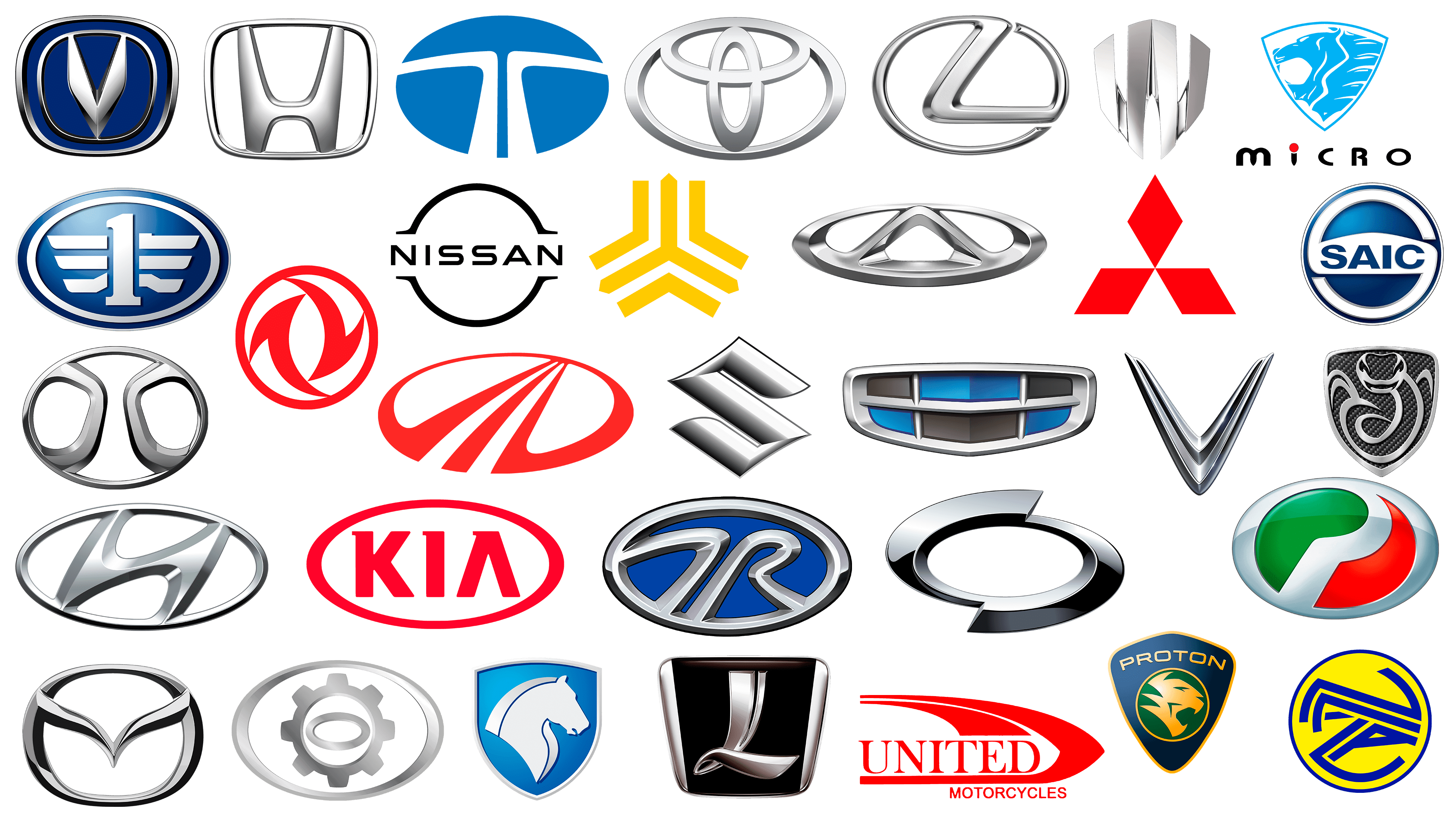
Acura (Honda): Precision Crafted Performance
Acura positioned itself as the performance-oriented luxury brand, leveraging Honda’s engineering prowess and racing heritage. Its focus is on delivering an engaging driving experience through innovative technology and a driver-centric approach.
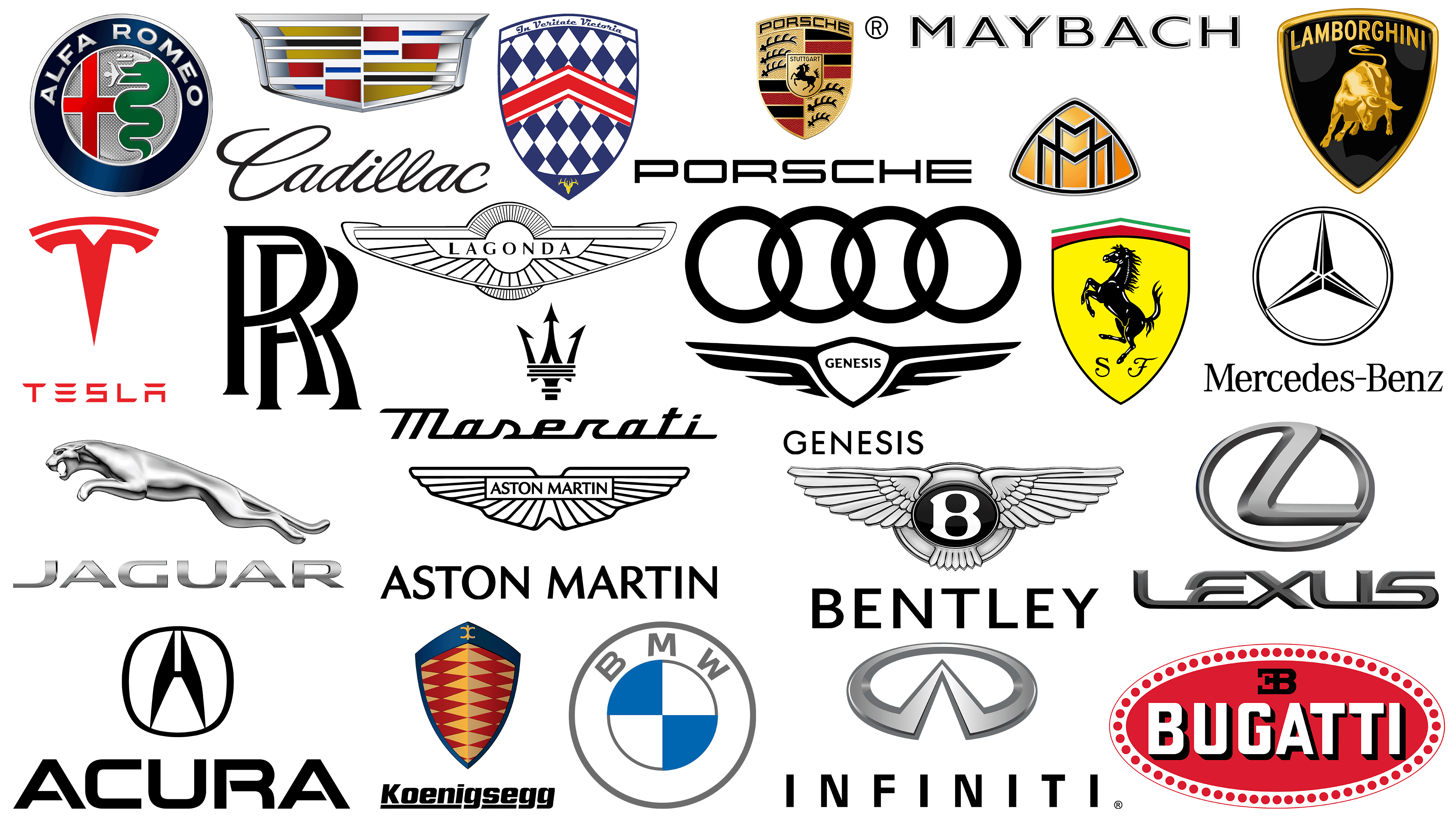
- Philosophy: "Precision Crafted Performance," innovative engineering, advanced technology, and a focus on dynamic driving characteristics.
- Key Models: The legendary NSX supercar, the versatile MDX SUV, and the sporty TLX sedan.
- Distinctive Features: Super Handling All-Wheel Drive (SH-AWD), a sophisticated torque-vectoring system that enhances handling and stability; advanced VTEC engines; and a design language that conveys athleticism and dynamism. Acura often appeals to buyers who appreciate sophisticated engineering and a more involved driving experience.

Infiniti (Nissan): Human-Centric Design and Bold Expression
Infiniti sought to differentiate itself with bold, expressive design and a focus on human-centric technology. It aims to offer a more emotional and artistic approach to luxury.
- Philosophy: Empowering performance, daring design, and human-centric technology that anticipates needs.
- Key Models: The full-size QX80 SUV, the performance-oriented Q50 sedan, and various QX crossovers.
- Distinctive Features: Striking, fluidic design language; innovative technologies like Direct Adaptive Steering (steer-by-wire) and the world’s first production variable compression engine (VC-Turbo); and luxurious, well-appointed interiors designed for passenger comfort. Infiniti often appeals to those looking for a luxury vehicle that stands out from the crowd with its distinctive styling.
Genesis (Hyundai): Athletic Elegance and Disruptive Value
Genesis, the newest entrant, rapidly made a name for itself by combining striking "Athletic Elegance" design with a compelling value proposition and a strong emphasis on customer convenience. It directly challenges established luxury brands by offering a premium experience without the traditional premium price tag.
- Philosophy: "Athletic Elegance" in design, a commitment to exceptional customer experience (e.g., concierge services, complimentary maintenance), and advanced technology wrapped in a luxurious package.
- Key Models: The G80 mid-size sedan, the G90 flagship sedan, and the popular GV70 and GV80 SUVs, along with the Electrified G80 and GV60 EV.
- Distinctive Features: The signature "Two Lines" design motif; opulent interiors featuring real wood, aluminum, and Nappa leather; comprehensive standard safety features; long warranties; and a focus on seamless, personalized ownership experiences (e.g., home test drives, valet service for maintenance). Genesis has quickly gained a reputation for offering a lot of luxury for the money.
Technological Innovation and Design Language
Asian luxury brands are not just followers; they are often leaders in adopting and developing cutting-edge automotive technology.
- Powertrains: From Lexus’s pioneering and highly efficient hybrid systems to Infiniti’s variable compression engines and Genesis’s rapid adoption of advanced electric vehicle platforms, innovation in propulsion is a hallmark.
- Driver-Assistance Systems (ADAS): These brands consistently offer comprehensive suites of safety and driver-assist technologies (e.g., adaptive cruise control, lane-keeping assist, blind-spot monitoring) as standard or easily accessible features, often leading the industry in their breadth and refinement.
- Infotainment and Connectivity: Large, intuitive touchscreens, robust voice control systems, wireless smartphone integration, and sophisticated navigation are standard. Asian brands excel at integrating technology seamlessly into the user experience, often focusing on user-friendliness.
- Design and Craftsmanship: While European luxury often emphasizes heritage, Asian brands blend modern aesthetics with subtle nods to traditional craftsmanship. Lexus’s "Takumi" masters hand-finish elements, Genesis’s "Two Lines" motif creates a distinctive presence, and Acura’s focus on dynamic proportions results in athletic stances. Interiors are a sanctuary, meticulously designed with premium materials, ambient lighting, and exceptional sound insulation to create a quiet, comfortable environment.
The Asian Luxury Experience: Beyond the Vehicle
Owning an Asian luxury car extends beyond the vehicle itself. These brands have invested heavily in creating a distinctive ownership experience that often sets them apart.
- Customer Service: Rooted in the "Omotenashi" philosophy, brands like Lexus offer highly personalized and attentive customer service, often anticipating needs before they are expressed. Genesis has further elevated this with white-glove services like at-home test drives, valet service for maintenance, and comprehensive warranty programs designed to minimize owner hassle.
- Reliability and Resale Value: A traditional strength of Asian manufacturers, reliability translates directly to their luxury divisions. This robust build quality often results in lower long-term ownership costs and excellent resale values, making them a wise investment.
- Warranty and Maintenance: Genesis, in particular, offers industry-leading warranties and complimentary scheduled maintenance programs, significantly reducing the cost of ownership during the initial years.
Challenges and Future Outlook
Despite their significant achievements, Asian luxury brands face ongoing challenges.
- Brand Perception: Overcoming decades of European luxury dominance and convincing some buyers that a "Toyota" or "Hyundai" luxury division is truly premium can still be a hurdle, though this perception is rapidly changing.
- Electrification: The transition to electric vehicles presents both an opportunity and a challenge. While brands like Lexus and Genesis are rapidly expanding their EV offerings, the competition in the luxury EV space is intense.
- Global Expansion: While well-established in North America, these brands continue to build their presence in other key luxury markets, including Europe and China.
The future for Asian luxury car brands looks incredibly promising. They are poised for continued growth, driven by:
- Continued Innovation: Expect further advancements in electrification, autonomous driving, and connected car technologies.
- Distinctive Design: They will continue to refine their unique design languages, offering alternatives to the more traditional European aesthetic.
- Personalized Luxury: A focus on bespoke options and highly personalized customer experiences will become even more prevalent.
- Emergence of Chinese Luxury EVs: While the core "Asian Luxury" has historically referred to Japanese and Korean brands, high-end Chinese EV brands like Nio, Xpeng, and Zeekr are rapidly gaining traction, particularly in their domestic market, and are beginning to eye global expansion, adding another layer to the Asian luxury narrative.
Practical Advice and Actionable Insights
For those considering an Asian luxury vehicle:
- Experience All Options: Don’t limit yourself. Test drive models from Lexus, Acura, Infiniti, and Genesis. Each offers a distinct personality and driving experience.
- Evaluate Your Priorities: Do you value ultimate reliability and serene comfort (Lexus)? Dynamic performance (Acura)? Bold design (Infiniti)? Or a compelling blend of luxury and value with exceptional service (Genesis)?
- Consider Long-Term Ownership: Factor in reliability, resale value, and warranty coverage, areas where Asian brands often excel.
- Explore Dealership Experience: The "luxury experience" starts at the dealership. Pay attention to the sales and service experience, as this is a core differentiator for these brands.
Concluding Summary
The rise of Asian luxury car brands is a testament to relentless innovation, a deep understanding of customer needs, and an unwavering commitment to quality. From Lexus’s "Omotenashi" to Acura’s "Precision Crafted Performance," Infiniti’s bold design, and Genesis’s "Athletic Elegance," these brands have not merely replicated existing luxury but have redefined it. They offer a compelling alternative to traditional luxury, combining cutting-edge technology, meticulous craftsmanship, superior reliability, and an exceptional ownership experience. As the automotive world continues to evolve, Asian luxury brands are not just formidable contenders; they are leading the charge into the future of premium mobility, proving that true luxury knows no single origin.
Asian Luxury Car Brands: Approximate Starting MSRP Table
Please note: Prices are approximate Starting Manufacturer’s Suggested Retail Prices (MSRP) in USD for base models and can vary significantly based on trim level, options, region, taxes, and dealer markups. This table is for illustrative purposes only.
| Brand | Model | Type | Starting MSRP (Approx. USD) | Key Features / Notes |
|---|---|---|---|---|
| Lexus | ES 350 | Mid-size Sedan | $43,000 | Smooth ride, quiet cabin, high reliability, available hybrid. |
| RX 350 | Mid-size SUV | $49,000 | Best-selling luxury SUV, comfortable, refined, available hybrid. | |
| LS 500 | Full-size Sedan | $80,000 | Flagship sedan, exceptional comfort, Takumi craftsmanship, V6 twin-turbo. | |
| LC 500 | Luxury Coupe | $99,000 | Stunning design, V8 engine (or hybrid), grand touring capabilities. | |
| Acura | Integra | Compact Sedan | $32,000 | Sporty entry-level luxury, manual transmission option, premium features. |
| TLX | Mid-size Sedan | $46,000 | Sporty handling, available SH-AWD, Type S performance variant. | |
| MDX | Mid-size SUV | $52,000 | 3-row family SUV, athletic driving dynamics, available SH-AWD. | |
| NSX | Supercar | N/A (Discontinued) | Hybrid supercar, precision handling (pre-owned market only). | |
| Infiniti | Q50 | Compact Sedan | $43,000 | Bold styling, powerful twin-turbo V6, available AWD. |
| QX60 | Mid-size SUV | $51,000 | Stylish 3-row SUV, comfortable interior, refined V6 engine. | |
| QX80 | Full-size SUV | $75,000 | Large, capable, and luxurious body-on-frame SUV, strong V8 engine. | |
| Genesis | G70 | Compact Sedan | $41,000 | Sporty, driver-focused, premium interior, great value. |
| G80 | Mid-size Sedan | $55,000 | "Athletic Elegance" design, opulent interior, advanced tech, available EV. | |
| GV70 | Compact SUV | $45,000 | Award-winning design, luxurious cabin, spirited performance. | |
| GV80 | Mid-size SUV | $58,000 | Flagship SUV, stunning design, high-quality materials, strong safety features. | |
| Electrified G80 | Mid-size EV | $79,000 | All-electric version of G80, smooth, quiet, premium EV experience. |
Frequently Asked Questions (FAQ) about Asian Luxury Car Brands
Q1: Are Asian luxury cars as good as European ones?
A1: Yes, absolutely. While European brands often boast a longer heritage, Asian luxury brands have caught up and, in many areas, surpassed their European counterparts, particularly in terms of reliability, technology integration, and customer service. They offer a distinct interpretation of luxury, focusing on precision, innovation, and a serene ownership experience. The "best" depends on individual preferences for driving dynamics, design, and brand ethos.
Q2: Why are Asian luxury cars often considered more reliable?
A2: This reputation stems from the parent companies (Toyota, Honda, Nissan, Hyundai) which have long been leaders in quality control and manufacturing excellence. Their luxury divisions inherit these rigorous standards, resulting in vehicles with fewer reported issues, lower maintenance costs over time, and a strong track record for longevity.
Q3: What’s the main difference between Lexus, Acura, Infiniti, and Genesis?
A3:
- Lexus: Focuses on serene comfort, impeccable reliability, refined hybrid technology, and a luxurious, quiet ride ("Omotenashi").
- Acura: Emphasizes "Precision Crafted Performance," innovative engineering (like SH-AWD), and a driver-centric, sporty experience.
- Infiniti: Stands out with bold, expressive design, human-centric technology, and engaging driving dynamics.
- Genesis: Offers "Athletic Elegance," a strong value proposition, comprehensive standard features, and a concierge-level customer service experience.
Q4: Do Asian luxury cars hold their value well?
A4: Generally, yes. Lexus, in particular, has a strong reputation for excellent resale value due to its reliability and desirability. Acura and Genesis also perform well. Infiniti’s resale value can be more variable but is competitive within the luxury segment. Their strong reliability and lower long-term ownership costs contribute positively to their value retention.
Q5: Are there any Chinese luxury car brands?
A5: While not yet as globally established as Lexus, Acura, Infiniti, or Genesis, China is rapidly developing its own luxury car brands, particularly in the electric vehicle (EV) segment. Brands like Nio, Xpeng, and Zeekr are making significant strides with high-end designs, advanced technology, and premium customer experiences, primarily within China but with growing ambitions for international markets. They represent an exciting new chapter in Asian luxury automotive.

